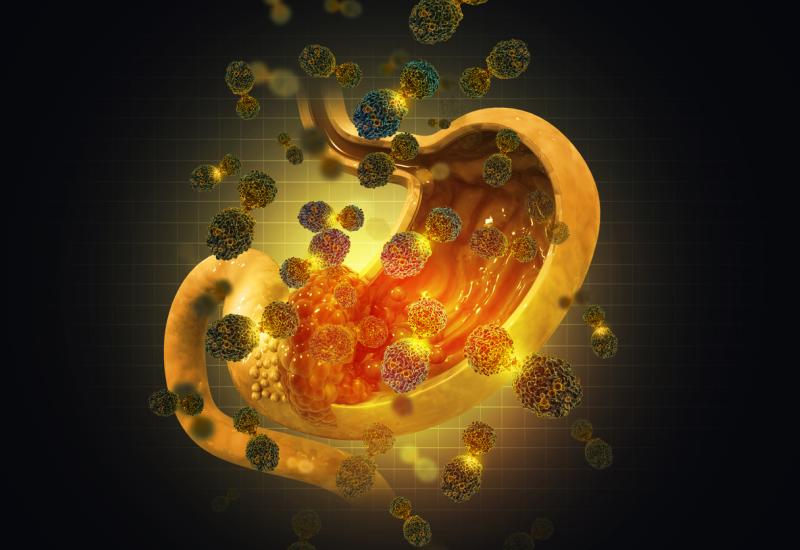
Roche’s Skyscraper looks on shaky foundations
Roche curbs its TIGIT push, while a co-stimulation crunch could be bad news for Regeneron.
Roche curbs its TIGIT push, while a co-stimulation crunch could be bad news for Regeneron.

First the good news for Roche: this year’s big readout, from the Skyscraper-01 trial of its TIGIT contender tiragolumab, remains on track for the second half. However, the group has discontinued a couple of other tiragolumab studies as TIGIT hopes dwindle.
The biggest to go, Skyscraper-15 in adjuvant NSCLC, is being canned because it’s only just been initiated and because of the recent Skyscraper-06 failure, Roche told ApexOnco. It seems that the company is cutting its losses before it invests much more here. Meanwhile, the phase 2 Skyscraper-05 periadjuvant study makes way for Roche to focus on its most advanced trials.
The spokesperson added that “all other trials with tiragolumab that are either already fully or nearly fully enrolled will continue” – but it now seems clear that Roche is unlikely to begin any new tiragolumab studies. This marks a distinct change after Roche's huge investment in TIGIT, which saw numerous Skyscraper studies get under way.
Roche’s phase 2 & 3 Skyscraper studies
| Study | Setting | Phase | Design | Data |
|---|---|---|---|---|
| Skyscraper-01 | 1st-line PD-L1+ve NSCLC | 3 | + Tecentriq, vs Tecentriq | Failed for PFS; OS numerically positive at second interim; final OS readout due H2 2024 |
| Skyscraper-02 | 1st-line SCLC | 3 | + Tecentriq + chemo, vs Tecentriq + chemo | Failed for PFS & OS |
| Skyscraper-03 | 1st-line maintenance in stage III NSCLC | 3 | + Tecentriq, vs Imfinzi | Data due H2 2024 |
| Skyscraper-04 | 2nd-line cervical cancer | 2 | + Tecentriq, vs Tecentriq | Failed for ORR |
| Skyscraper-05 | Periadjuvant NCLC | 2 | + Tecentriq +/- chemo | Discontinued Jul 2024 |
| Skyscraper-06 | 1st-line non-squam NSCLC | 3 | + Tecentriq + chemo, vs Keytruda + chemo | Failed for PFS & OS |
| Skyscraper-07 | 1st-line maintenance in oesophageal squam cell cancer | 3 | Tecentriq +/- tiragolumab, vs placebo | Completes Mar 2027 |
| Skyscraper-08 | 1st-line oesophageal cancer (Asia) | 3 | + Tecentriq + chemo, vs chemo | Positive for OS & PFS, but used outdated comparator |
| Skyscraper-09 | 1st-line head & neck cancer | 2 | + Tecentriq, vs Tecentriq | Completes Oct 2024 |
| Skyscraper-11 | 2nd-line solid tumours | 2 | Tiragolumab + Tecentriq fixed-dose combo | 1st pt enrolled Q2 2023 |
| Skyscraper-14/ Imbrave-152 | 1st-line liver cancer | 3 | + Tecentriq + Avastin, vs Tecentriq + Avastin | Completes Sep 2026 |
| Skyscraper-15 | Adjuvant PD-L1+ve stage IIB-IIIB NSCLC | 3 | + Tecentriq, vs Tecentriq | Discontinued Jul 2024 |
Source: OncologyPipeline & clinicaltrials.gov.
The most important of these, Skyscraper-01, is set for a reckoning later this year, when the final overall survival analysis is set to be reported. Hopes were raised last year by leaked positive interim data, but final readout of Skyscraper-01 has been delayed from 2023, presumably because events are accruing more slowly than expected.
Some investors might hope that this shows tiragolumab is keeping patients alive longer, but the key issue remains the use as comparator of Tecentriq, a demonstrably less efficacious drug than Keytruda.
Co-stimulation blues
Roche is also discontinuing a couple more projects in areas that have tripped up other companies: a CD19 x CD28 bispecific, RG6333, and vopikitug, an anti-CD25 MAb – a mechanism related to IL-2.
CD28 is a co-stimulatory domain, and many groups have tried harnessing these with largely lacklustre results; in 2022 Alpine Immune Sciences discontinued its CD28 costimulator and dual checkpoint inhibitor davoceticept after two patient deaths, and shifted focus to autoimmune and inflammatory disease.
The main proponent of CD28 currently is Regeneron, with bispecifics that additionally hit PSMA (nezastomig), EGFR (dalmitamig), and MUC16 (REGN5668), among others, while Johnson & Johnson has a couple of early-stage projects.
In addition, activating another co-stimulatory pathway, 4-1BB, has produced mixed results: Inhibrx ditched a project here, but BioNTech has produced promising data with its anti-PD-L1 x 4-1BB bispecific acasunlimab.
Roche also has a couple of fusion proteins that incorporate 4-1BB: RO7122290 (RG7827, additionally targeting FAP) and englumafusp alfa (CD19).
Not alpha
IL-2 has been a graveyard for biotech projects, and vopikitug is the latest to bite the dust. However, this isn’t a conventional IL-2 analogue.
CD25 is another name for the alpha chain of the IL-2 receptor, which is expressed on immune-suppressive T regulatory cells (Tregs). Blocking CD25 is therefore designed to deplete Tregs and prevent immunosuppression, thus enhancing anti-tumour responses. However, going by today’s discontinuation, this hasn’t had the desired effect.
There are only a handful of other clinical-stage anti-CD25 MAbs in the hands of biotechs, including Mabwell and Luye Pharma, according to OncologyPipeline.
However, the private US group Aulos has a similar approach: its lead project, AU-007, is a MAb that binds to IL-2 and prevents this from binding to CD25, and the group has now seen some responses in its phase 1/2 trial.
Roche, meanwhile, hasn’t given up on IL-2 entirely: it has a PD-1-targeted IL-2, known as eciskafusp alfa, or RG6279, in phase 1.
4266













